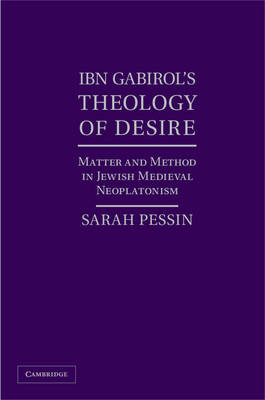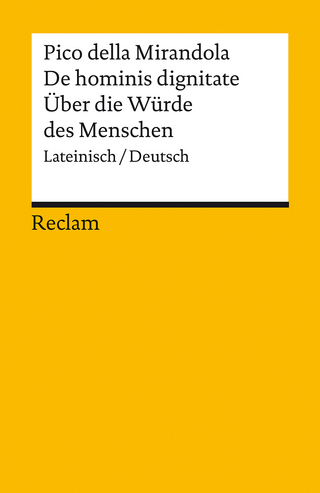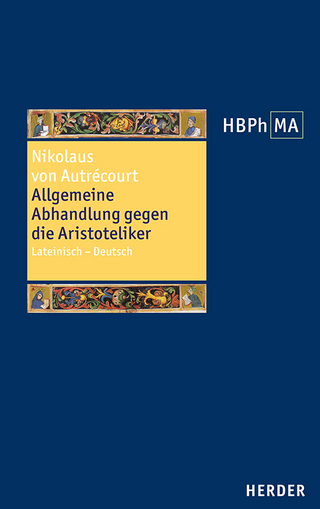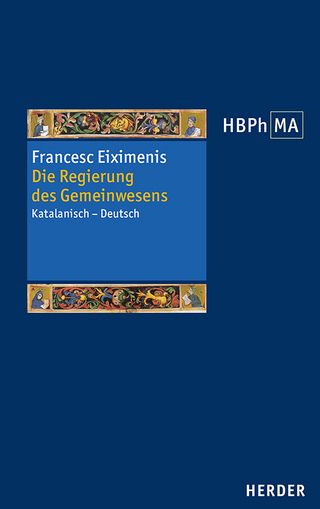
Ibn Gabirol's Theology of Desire
Cambridge University Press (Verlag)
978-1-107-03221-7 (ISBN)
Drawing on Arabic passages from Ibn Gabirol's original Fons Vitae text, and highlighting philosophical insights from his Hebrew poetry, Sarah Pessin develops a 'theology of desire' at the heart of Ibn Gabirol's eleventh-century cosmo-ontology. She challenges centuries of received scholarship on his work, including his so-called Doctrine of Divine Will. Pessin rejects voluntarist readings of the Fons Vitae as opposing divine emanation. She also emphasizes pseudo-Empedoclean notions of 'divine desire' and 'grounding element' alongside Ibn Gabirol's use of a particularly Neoplatonic method with apophatic (and what she terms 'doubly apophatic') implications. In this way, Pessin reads claims about matter and God as insights about love, desire, and the receptive, dependent and fragile nature of human beings. Pessin reenvisions the entire spirit of Ibn Gabirol's philosophy, moving us from a set of doctrines to a fluid inquiry into the nature of God and human being – and the bond between God and human being in desire.
Sarah Pessin is Associate Professor of Philosophy and the Emil and Eva Hecht Chair in Judaic Studies at the University of Denver. She works on Neoplatonisms (Greek, Jewish, Islamic and Christian), medieval philosophy, modern Jewish philosophy and comparative philosophies of religion. She has presented and published widely, including contributions to The Cambridge Companion to Medieval Jewish Philosophy, The Routledge Companion to Islamic Philosophy, The Cambridge History of Medieval Philosophy, The Blackwell History of Philosophy in the Middle Ages, The Stanford Encyclopedia of Philosophy and the Journal of the History of Philosophy. Her research interests include the phenomenology of receptivity, the nature of apophatic discourse, methodologies for the study of intercultural texts, and Jewish theologies of exile.
1. Introduction; 2. Text in context; 3. From human being to discourse on matter?: The threefold quest for wisdom, goodness, and God – and the root of life in desire; 4. Root desire and the Empedoclean grounding element as love; 5. From Divine Will to divine Irāda: on the mistaken scholarly rejection of Ibn Gabirol's emanation; 6. Irādic unfoldings: Ibn Gabirol's hylomorphic emanationism and the Neoplatonic tripart analysis; 7. Matter revisited; 8. Neoplatonic cosmo-ontology as apophatic response and as prescription for human living (methodological reappraisal, 1); 9. Transcendental grounding, mytho-poetic and symbolic transformation, and the creation of new worlds with words (methodological reappraisal, 2); 10. Embroidering the hidden.
| Erscheint lt. Verlag | 8.7.2013 |
|---|---|
| Verlagsort | Cambridge |
| Sprache | englisch |
| Maße | 158 x 235 mm |
| Gewicht | 510 g |
| Themenwelt | Geisteswissenschaften ► Philosophie ► Philosophie des Mittelalters |
| Geisteswissenschaften ► Religion / Theologie | |
| Sozialwissenschaften ► Soziologie ► Spezielle Soziologien | |
| ISBN-10 | 1-107-03221-0 / 1107032210 |
| ISBN-13 | 978-1-107-03221-7 / 9781107032217 |
| Zustand | Neuware |
| Haben Sie eine Frage zum Produkt? |
aus dem Bereich


